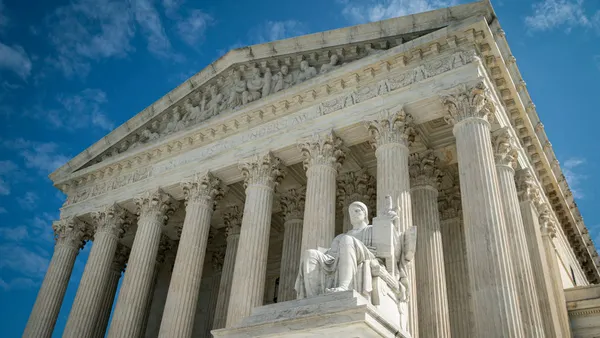A maintenance worker at Fluor Facility and Plant Services — the only Black member of a night shift crew — did not provide sufficient evidence to support claims of a hostile work environment and retaliation, a Kentucky district court ruled Feb. 21.
The worker complained of hearing racist jokes, being addressed with a racial slur as a “term of endearment,” being told he played basketball and rapped, and getting grease poured on his car, according to court documents. He also described being ostracized by co-workers through other means, such as being excluded from rides to worksites.
The judge on the case relied on U.S. Supreme Court guidance that a hostile work environment should be judged based on the frequency and severity of discriminatory conduct, whether it is physically threatening or humiliating (or, by contrast, “a mere offensive utterance”) and whether it unreasonably interferes with an employee’s performance.
The worker failed to prove his case according to these requirements, Judge Greg N. Stivers said, noting that two uses of the racial slur (beyond “as a term of endearment”) were in context of a meeting about the impropriety of using the word or making racist jokes at work and were not directed at the worker — a factor that “diminishe[d] their severity.”
The other racist behavior — such as the use of the word “boy” and the telling of racist jokes — were “mere offensive utterances,” Stivers ruled. And the pouring of grease on the windshield and exclusion from rides were “not explicitly racial in nature,” he said.
The judge also found insufficient evidence for retaliation.
The legal standard for hostile work environment claims is high, making them often difficult for workers to prove. In a 2019 case, a paper mill worker found his claim similarly thrown out by the district court and lost his appeal when he described a “handful of incidents” involving racist behavior over the course of several years. Both the district court and appeals court found the incidents did not rise to the level of severity and pervasiveness required by the Supreme Court.
In a 2020 case, a woman filed a hostile work environment lawsuit related to her disability, noting that her supervisor made a few derogatory statements about her, said she was a “problem child” and “troublemaker” and assigned her longer shifts, among other complaints. These also didn’t rise to the level of a hostile work environment, a district court and appeals court said.











